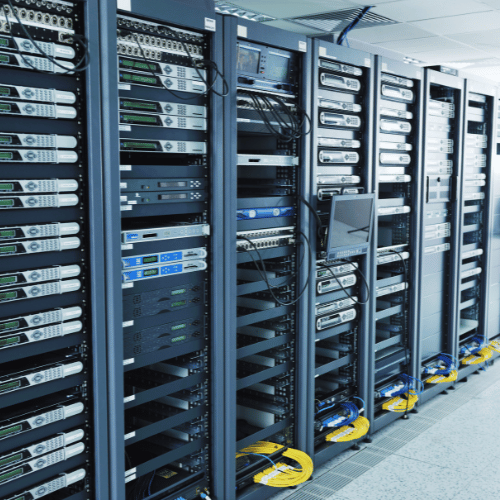A dedicated server is best suited for large enterprises, high-traffic websites, advanced applications that require significant computing resources, and companies that require full control over their network infrastructure. Here are some examples of situations where a dedicated server is the best solution.
Large enterprises
Large enterprises that process and store huge amounts of data (such as customer transactions, operational data, and big data) require servers that can handle these resources quickly and efficiently. Dedicated servers offer the performance needed to handle this load without the risk of slowdowns or failures that can occur on shared platforms. These companies also often need specific hardware configurations or software tailored to their unique business processes.
High-traffic websites and applications
Portals with a large number of users, online stores during promotional periods, or digital media during important events can experience very high traffic, which requires the right infrastructure. Dedicated servers provide resources that are not shared with other clients, meaning that all available resources are used to serve a single page or application, resulting in faster load times and more stable performance.
Specialized configuration requirements
Some business applications or specialized platforms (such as ERP systems, high-performance databases) may require unique hardware configurations or specialized software that are not available or supported on standard shared servers. Dedicated servers allow for the installation of custom hardware, specialized operating systems, or software that can be completely customized to the user’s individual needs.
Technology companies
Technology startups, software development companies, and cloud service providers often require specific, flexible testing or production environments that can be easily scaled or modified as projects evolve. Dedicated servers offer this flexibility, allowing technology companies to focus on innovation without worrying about resource constraints.
Businesses with data security requirements
Institutions such as banks, medical facilities, and law firms that are required to adhere to strict data security and privacy regulations (e.g. PCI-DSS) can find dedicated servers to be a better way to manage security. Dedicated servers enable the implementation of advanced security measures, such as custom firewalls, dedicated VPN solutions, and physical security measures that are not always possible in shared models.
Each of these scenarios requires different levels of control, performance, and security that can best be delivered by dedicated servers, giving users the ability to fully configure and optimize their server environment according to their specific requirements.
